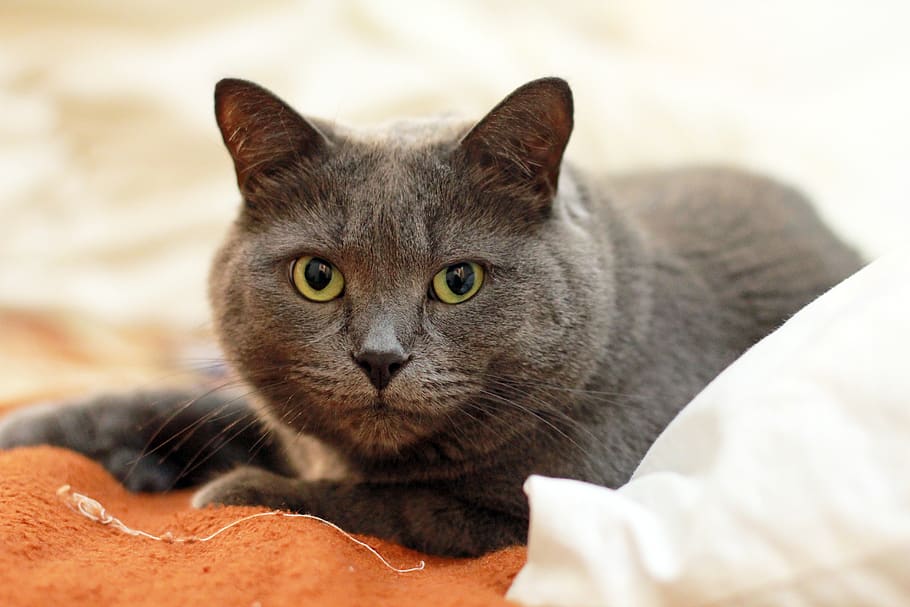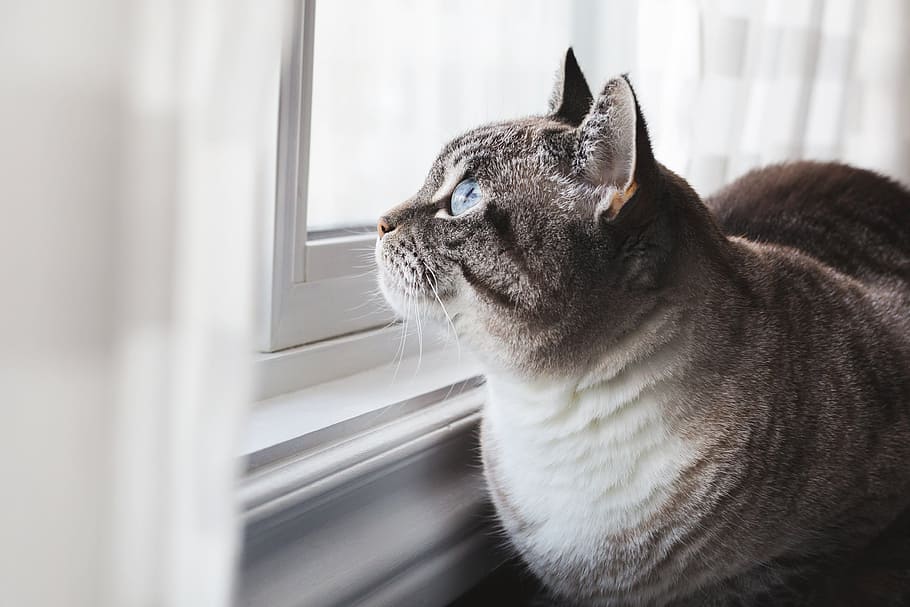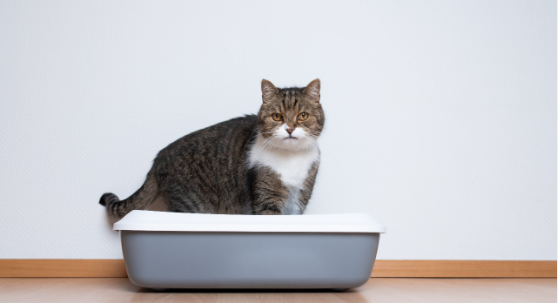What is Toxic to Cats?
As cat owners, our feline friends’ safety and well-being are always a top priority. One of the most important things we can do to ensure our cats live long and healthy lives is to educate ourselves on what can be toxic to them. This includes knowing which foods, plants, medications, and household chemicals can harm our furry companions.
Definition of Toxic
Toxicity refers to the degree or extent that a substance can cause harm or damage when it enters the body. Something that is toxic has the potential to cause illness, injury, or even death if ingested in sufficient quantities.
In the context of cats, toxicity usually refers to items that are poisonous when consumed or exposed to their skin or respiratory systems. It’s essential for cat owners to understand what substances are toxic and how they can affect their pets’ health.
The importance of knowing what is toxic for cats
Knowing what substances are harmful to cats allows us as pet owners to take proactive steps toward reducing exposure and preventing accidental poisoning incidents from happening. Early recognition of symptoms associated with toxicity can be life-saving in some cases as prompt medical attention can often prevent severe harm from occurring. Additionally, being knowledgeable about toxins helps us make informed decisions about the products we use around our homes and gardens.
Many common household items contain chemicals that are highly toxic for cats but may not be obvious at first glance. In sum, understanding which substances pose a threat means being equipped with knowledge that could ultimately save your cat’s life in an emergency situation. Common Household Items Toxic to Cats
Cats are known for their curious nature and inquisitive behavior. As natural explorers, they love to investigate everything in their environment.
However, some of the things that cats may come across in your household can be toxic and even fatal to them. It is important for cat owners to be aware of these common household items that can harm their feline friend. Plants
While plants add beauty and freshness to any home, many of them can be poisonous if ingested by cats. Lilies are one such plant that is extremely toxic to cats. All parts of the lily plant, including the flowers, leaves, stem, and pollen, can cause severe kidney damage or failure if ingested by a cat.
Poinsettias are another common holiday plant that is toxic to cats if ingested in large amounts. They contain a milky sap that can cause irritation and vomiting if ingested by cats.
Aloe Vera is yet another common houseplant that many people keep around for its medicinal properties. However, it’s important to note that Aloe Vera leaves have saponins that are toxic when consumed by pets like cats and dogs. Foods
Cats require specific nutrients in their diet to stay healthy and strong. Some foods we humans consume may not be suitable for feline consumption as they can cause severe health issues or even death if consumed by a cat. Chocolate contains a compound called theobromine which is toxic for cats when consumed in large quantities – symptoms include vomiting diarrhea and seizures.
Cats should never consume onions or garlic as they contain compounds called organosulfoxides which destroy red blood cells leading to anemia; this could prove fatal, especially with significant blood loss over time. Grapes and Raisins are other foods that can be toxic to cats causing kidney failure if ingested in large quantities. Cats indeed are curious creatures and it’s important to keep an eye on them while they explore their surroundings; this will help in preventing them from harm, especially when it comes to things that may be toxic to them.
What is Toxic to Cats?:Medications Toxic to Cats
Over-the-counter Medications
Cats are very sensitive to many over-the-counter (OTC) medications that people use for pain relief. These medications can be dangerous and even life-threatening if ingested by a cat.
Acetaminophen (Tylenol), ibuprofen (Advil, Motrin), and naproxen (Aleve) are all common OTC medications that can be toxic to cats. Acetaminophen is especially toxic as it can cause severe damage to a cat’s liver and red blood cells.
Just one tablet of acetaminophen can be fatal for a cat. Ibuprofen and naproxen can cause stomach ulcers, vomiting, diarrhea, kidney failure, seizures, or even death in cats.
Prescription Medications
Many prescription medications are also toxic to cats. Antidepressants, blood pressure medications, and diabetes medications are some of the most commonly prescribed drugs that can be harmful or fatal for cats if ingested.
Some antidepressants contain serotonin reuptake inhibitors (SSRIs) which can cause an increase in serotonin levels leading to agitation, muscle tremors, or seizures in cats. Blood pressure medication intended for humans may lower the blood pressure of a cat too much which results in lethargy, weakness, or collapse.
Diabetes medication may lower glucose levels too low causing seizures or a coma-like state if given to a healthy cat. It is important for pet owners not to administer any medication intended for humans without explicit approval from their veterinarian even with similar ailments and symptoms such as pain relievers like aspirin as such medicines could turn lethal over time causing more harm than good without appropriate dosage calculation required per pound of the animal’s weight and other health conditions.
What is Toxic to Cats?:Cleaning Products
Bleach and Ammonia-based Cleaners
Cleaning products are an essential part of any household, but they can be incredibly dangerous to cats. Bleach and ammonia-based cleaners are particularly hazardous because they release fumes that can cause respiratory problems in cats.
Bleach contains sodium hypochlorite, which is highly toxic to cats. When inhaled or ingested, it can cause severe irritation and even chemical burns.
Similarly, ammonia-based cleaners contain harsh chemicals that can cause inflammation of the lungs, nose, throat, and eyes. To keep your cat safe from these cleaning products, it’s important to read labels carefully before purchasing them.
Look for products that are specifically designed for use around pets or opt for natural cleaning solutions like vinegar or baking soda. Always ensure that your cat is out of the room when using these products and ventilate the area well after cleaning.
Drain Cleaners and Oven Cleaners
Drain cleaners and oven cleaners are two other household cleaning products that pose a significant risk to cats. Drain cleaners usually contain lye or sulfuric acid which can cause chemical burns on contact with skin or fur if ingested it may burn through the esophagus as well as other internal organs causing severe damage to your cat’s health.
Similarly, oven cleaners contain powerful chemicals like sodium hydroxide which can be incredibly toxic if ingested by a curious cat. To keep your cat safe from these types of cleaners try using natural solutions like baking soda mixed with vinegar; this mixture will help break up clogs in drains without harming your furry friend’s health
Other Chemicals
Antifreeze and Coolant Fluids.
Antifreeze is one of the most deadly household chemicals for cats due to its sweet taste; it often attracts them but can be lethal even in small amounts. Antifreeze contains ethylene glycol which when ingested, causes kidney failure and can ultimately lead to the cat’s death within only a few hours. Symptoms of antifreeze poisoning include vomiting, diarrhea, excessive thirst, and lethargy.
To protect your cat’s health from antifreeze leaks or spills, keep all containers tightly closed and out of reach of pets. If you suspect that your cat has ingested antifreeze or any other toxic substance mentioned in this article seek veterinary attention immediately.
Insecticides and Rodenticides
Insecticides and rodenticides are pesticides that contain chemicals designed to kill pests like rodents and insects. Unfortunately, they can also be incredibly dangerous to cats if ingested accidentally. These products often contain poisons like organophosphates which attack the nervous system of animals leading to seizures or death.
To protect your cat from these types of chemicals opt for non-toxic pest control methods like traps or natural repellents instead of traditional pesticides. If you must use a pesticide, keep it out of reach and follow all safety instructions carefully.
Conclusion
The safety of our feline friends is essential at home; taking precautions with cleaning products and household chemicals can potentially save their lives from accidental poisonings. Always follow the manufacturer’s instructions while using cleaning agents that are pet safe as well as reading labels on insecticides/rodenticides before purchasing them for their safety. Keeping an eye on what may seem small details such as not leaving antifreeze containers open could help prevent fatal accidents in our beloved pets’ lives.




